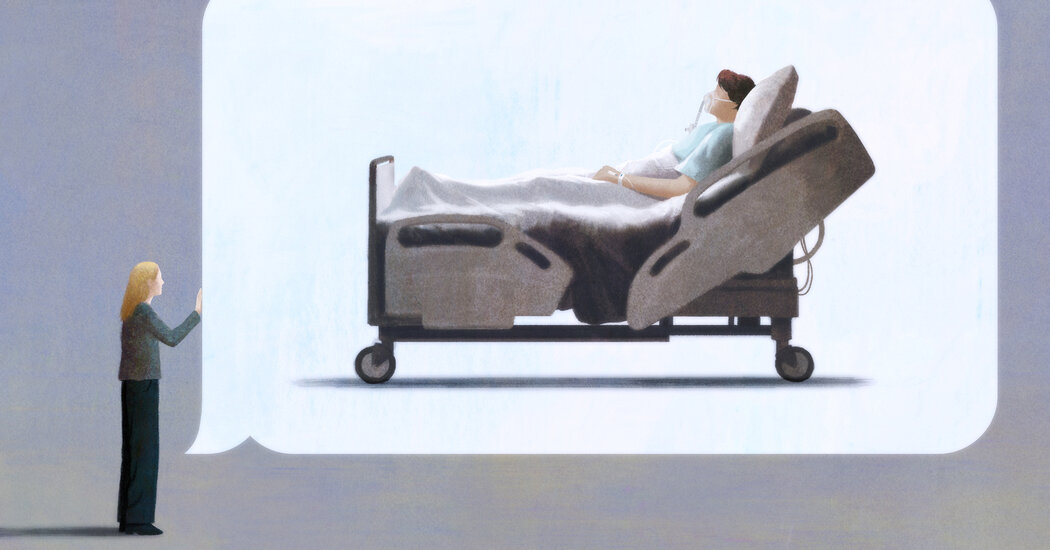
She has bilateral pneumonia and acute respiratory distress. The doctors explain her inflammation to me as a “cytokine storm” that is ravaging her body.
Her decline is steep, only 17 days between diagnosis and death. Looking back at our messages over those 17 days, I am struck by a reversal: I am the one reaching out to her, with long, frequent texts that attempt to draw out time.
I want to be with you, holding your hand.
I know that there’s hope, I’m praying so hard.
Mom, I miss you. Are you there?
My mother’s responses, on the other hand, contract. Our final exchanges are like an aperture closing, the last window through which I can view her.
I know, she writes at one point, so hard.
***
My dad is discharged to struggle at home, and I nurse him through an iPad, keeping his face near mine as we sleep so I can listen to his breathing. When my mother dies, I don’t tell him at first, fearing he will follow. But as the days pass, his breath deepens, and the fevers that gripped his body begin to recede, and I say the words. He has been expecting them, but still his face breaks in a way I hadn’t known a face could.
I save my mother’s final texts, but they hold nothing of her voice: the scratchy Jewish Bronx accent, the warmth, the descent of her tone when she knew our call had to end, so full of longing and love: Ok, darling … talk to you soon.
Jennifer Spitzer is an Associate Professor of English at Ithaca College.
